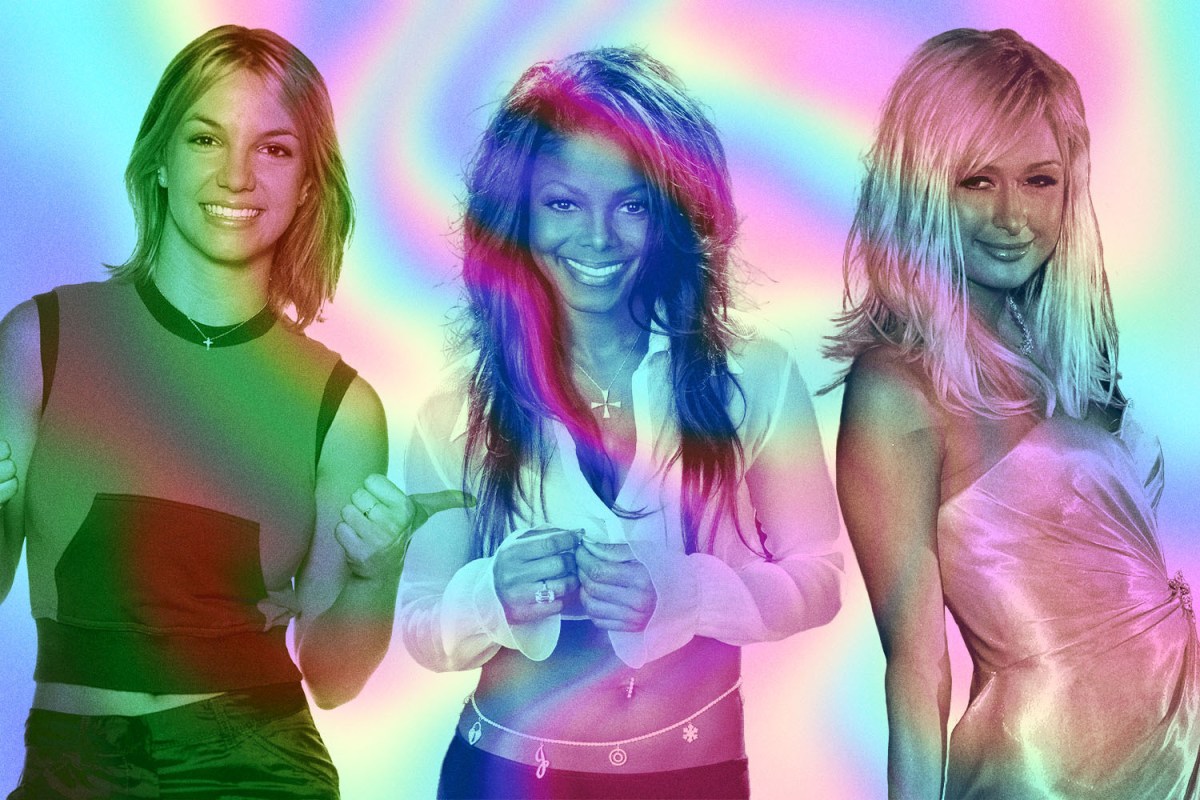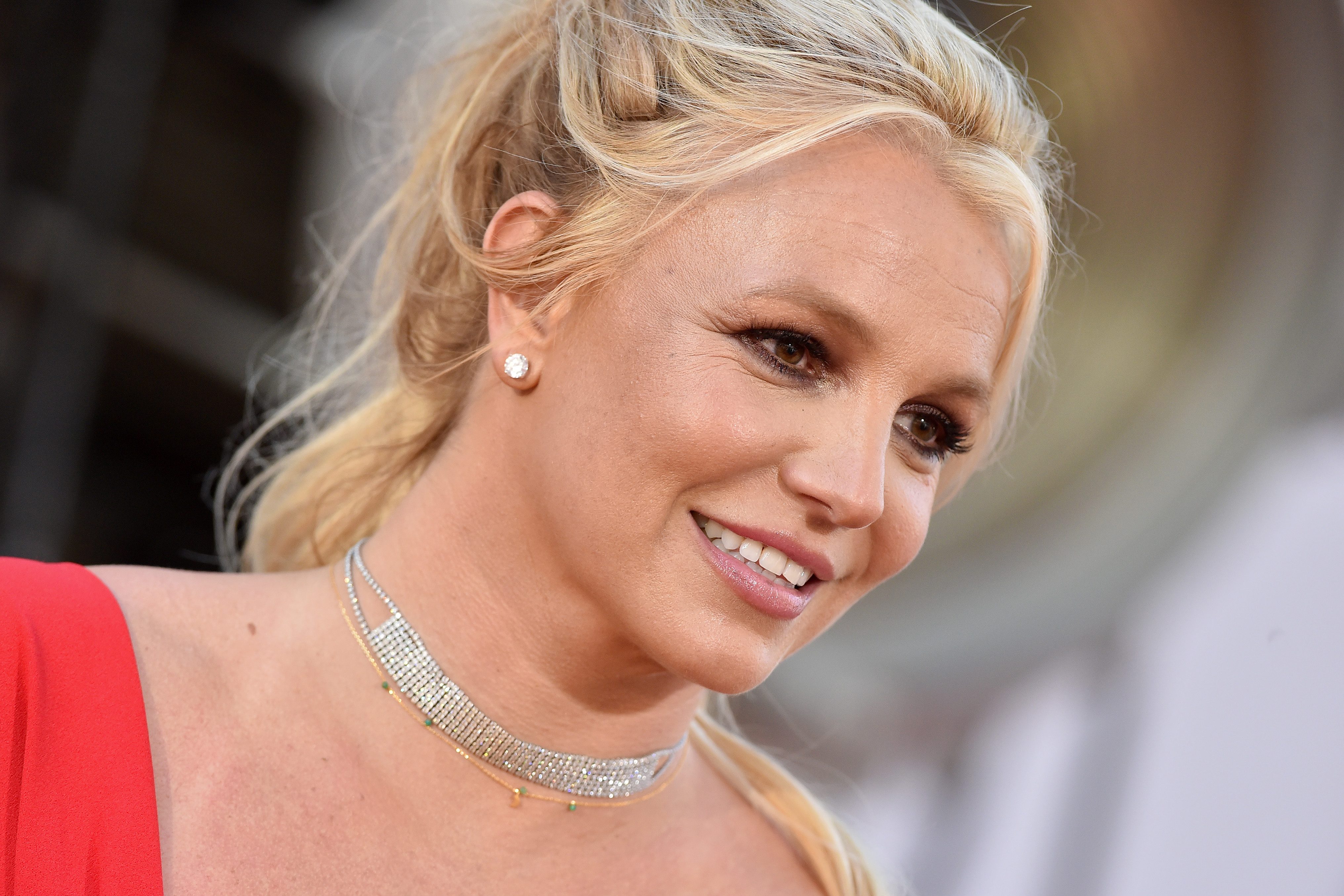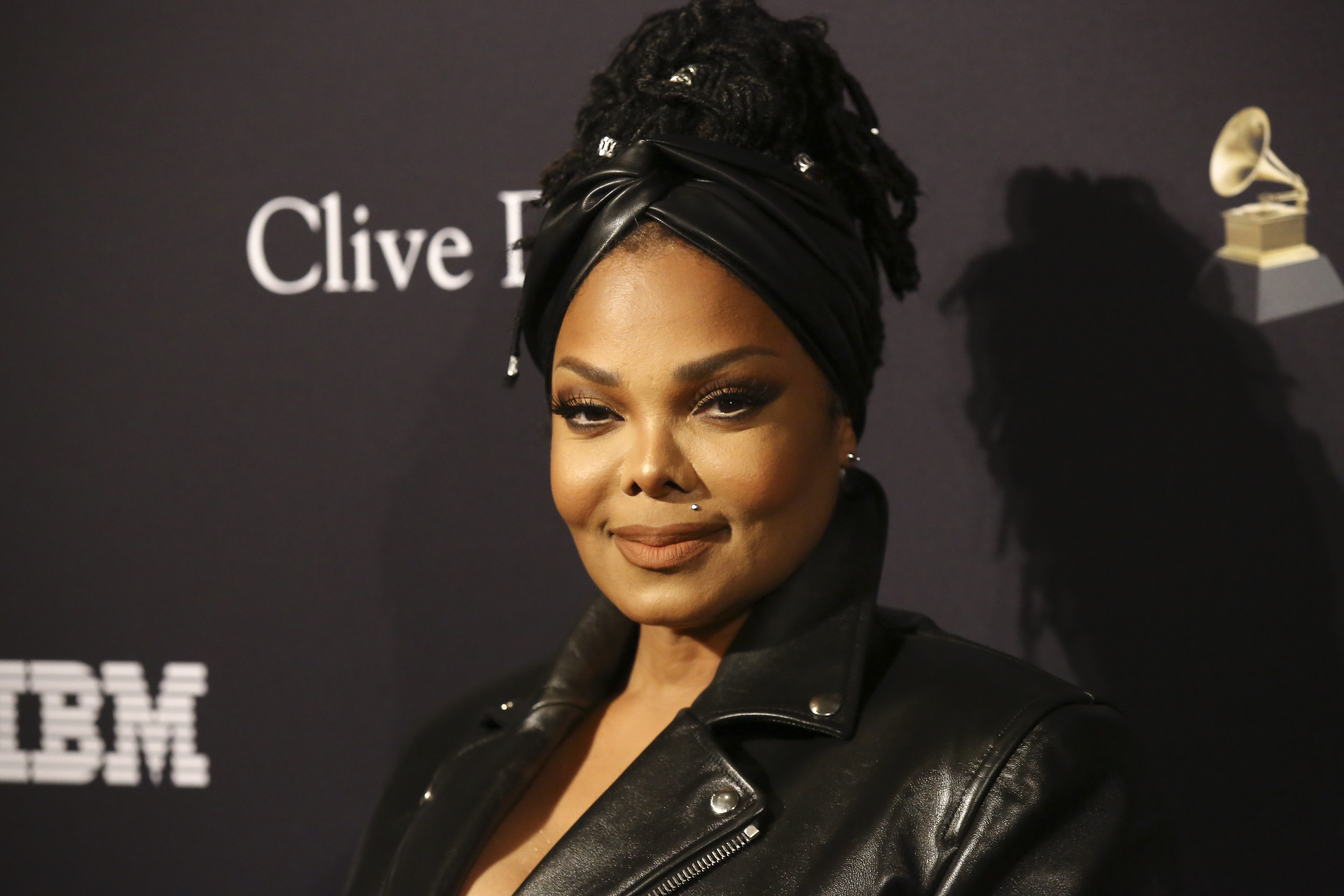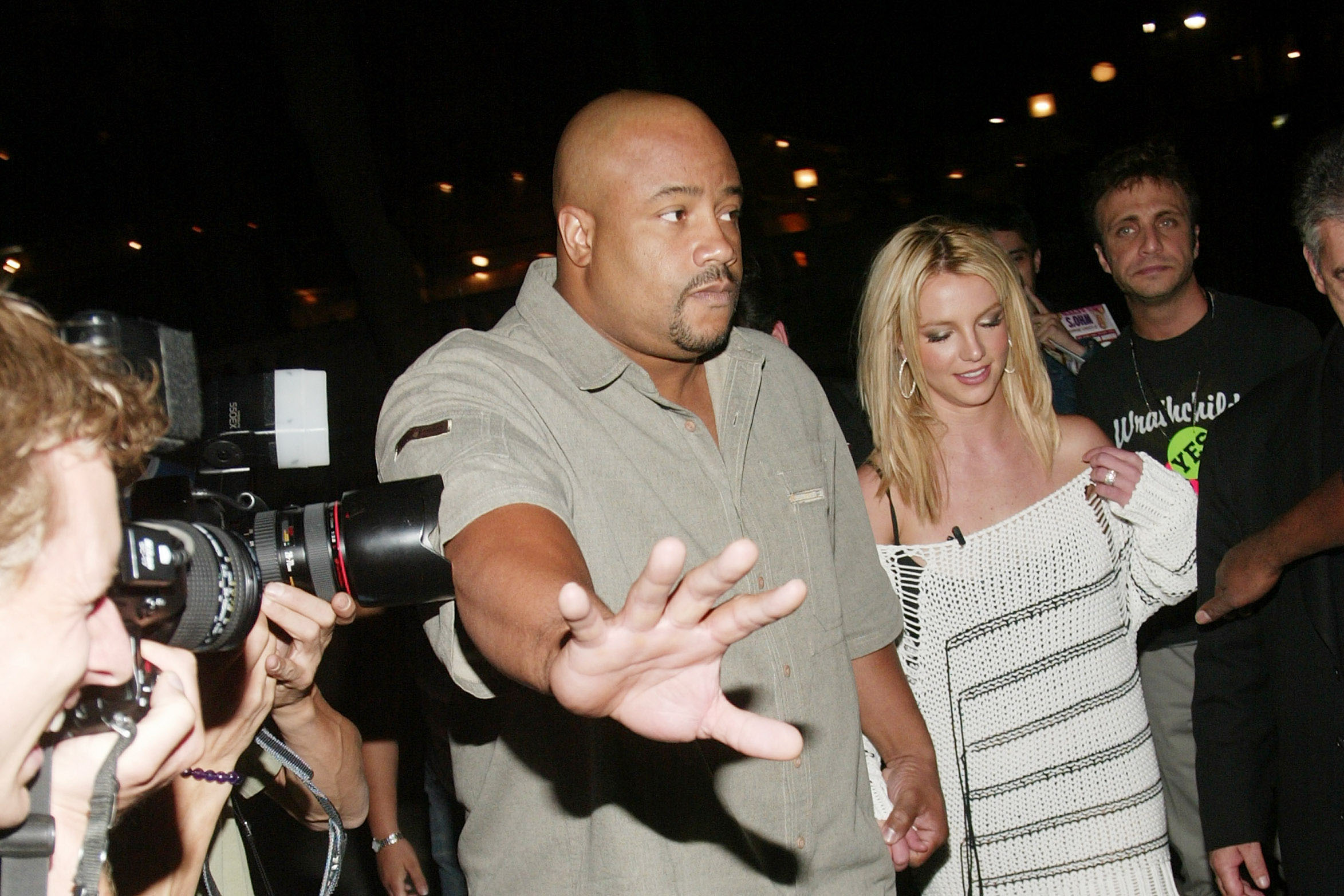This last year, understandably, saw most of us dwelling on the very recent past and looking ahead to the immediate future. The early days of lockdown from spring 2020 may feel like decades ago, but with Omicron spreading like wildfire, many of us are primarily focused on what the coming months will bring. And yet, amid all the chaos, we were still able to spend a good chunk of time reflecting on the way things were 20 years ago — and realizing it was far uglier than we had previously remembered.
2021 saw Britney Spears finally freed from her 13-year conservatorship, and the renewed interest in her legal situation — heightened by the massively popular Framing Britney Spears documentary — forced us to reexamine the ways in which the mainstream media (and the culture at large) wronged the singer and other female celebrities like her in the early ’00s. These women were subjected to horrific harassment at the hands of the paparazzi, bombarded with inappropriate questions about their bodies and their sexuality, slut-shamed and painted as “crazy” or “bitchy” when they refused to simply grin and bear it. Looking back, it’s hard to believe so many people failed to notice the blatant misogyny of it all at the time. But better late than never, and this year saw many formerly “disgraced” celebs like Spears, Janet Jackson and Paris Hilton get the reappraisal they deserve.
Spears is, of course, the most glaring example. Framing Britney Spears highlighted just how frequently she was made to answer for her appearance, with countless reporters asking the then-still-underage pop star questions about her breasts and virginity. When she began displaying signs of mental illness, instead of laying off, they only pushed her harder, turning her very real, very concerning breakdown into gimmicky tabloid fodder and late-night punchlines. After she split with Justin Timberlake in 2003, she sat for an interview with Diane Sawyer where the journalist demanded to know what she had done to cause Timberlake “so much pain, so much suffering,” before reading her a quote from the wife of the governor of Maryland at the time about how she’d shoot Spears if given the opportunity, causing the former Disney star to burst into tears.
The resurfaced Sawyer interview sparked fresh outrage in 2021 on Spears’ behalf, along with a healthy amount of ire directed at Timberlake over the way he bragged about taking her virginity and then allowed her to be scapegoated in the wake of their breakup. The public pressure got so bad that eventually Timberlake apologized to her (along with Janet Jackson, for his role in the infamous Super Bowl “wardrobe malfunction” that derailed her career) in a lengthy Instagram post 20 years after the fact. “I specifically want to apologize to Britney Spears and Janet Jackson both individually, because I care for and respect these women and I know I failed,” he wrote. “I also feel compelled to respond, in part, because everyone involved deserves better and most importantly, because this is a larger conversation that I wholeheartedly want to be a part of and grow from.”
“The industry is flawed,” Timberlake added. “It sets men, especially white men, up for success. It’s designed this way. As a man in a privileged position, I have to be vocal about this. Because of my ignorance, I didn’t recognize it for all that it was while it was happening in my own life but I do not want to ever benefit from others being pulled down ever again. I have not been perfect in navigating all of this throughout my career. I know this apology is a first step and doesn’t absolve the past. I want to take accountability for my missteps in all of this as well as be part of a world that uplifts and supports. I care deeply about the wellbeing of the people I love and have loved. I can do better and will do better.”
He is, of course, completely right. As a man, he was exempt from the same scrutiny and shaming that Jackson received in the wake of the Super Bowl incident in 2004, despite the fact that he was the one who ripped off her costume. Perhaps encouraged by the success of their Framing Britney Spears doc, the New York Times followed up that project with Malfunction: The Dressing Down of Janet Jackson last month. The documentary examines the way Jackson’s career was stalled by the scandal surrounding her halftime performance while Timberlake went largely unpunished and in fact only saw his star power grow as a result of it. Clearly, there’s renewed interest in the ways in which the industry failed her; next month will also see the release of A&E and Lifetime’s two-part docuseries JANET, executive produced by the singer herself.
Timberlake’s not the only formerly problematic male musician who weighed in on the industry’s poor treatment of women this year. John Mayer was quoted as saying he “almost cried five times” while watching the Spears doc. “I came out OK … I have a very strong feeling that part of that is because I’m a man,” he said. “And I have a very strong feeling that a lot of these things that happen to female performers is endemic to being female … If you’re a man, you’re an outlaw. If you’re a woman, you’re kind of crazy. And when I watched that through that lens, my heart just ached the whole time.”
Of course, Mayer’s own past behavior towards female celebrities in the aughts caused many fans to call him a hypocrite and demand he apologize for the way he treated former girlfriends Jessica Simpson and Taylor Swift. Simpson — who also was the subject of many leering profiles and unfairly confronted with many body-shaming comments about her weight in that era — was most famously referenced to by Mayer as “sexual napalm” in a Playboy interview, but the problems with their relationship extended beyond objectifying comments like that. As Simpson wrote in her 2020 memoir, “He would tell me that my true self is so much greater than the person I was settling on being. Like there was some great woman inside me waiting to come out, and I had to hurry up and find her because he wanted to love that woman, not me. I constantly worried that I wasn’t smart enough for him. I was so afraid of disappointing him that I couldn’t even text him without having someone check my grammar and spelling.” She also wrote about how her relationship with Mayer led her to develop a drinking problem. “My anxiety would spike and I would pour another drink,” she wrote. “It was the start of me relying on alcohol to mask my nerves.”
Mayer also caught heat for painting Taylor Swift (whom he dated when he was 32 and she was 19) as a “crazy ex” and dismissing her legitimate concerns about their age difference in “Dear John” (“Dear John, I see it all now, it was wrong / Don’t you think 19’s too young / To be played by your dark, twisted games / When I loved you so?”) as “cheap songwriting.” 2021 saw further vindication for Swift with her new 10-minute version of “All Too Well,” which similarly highlighted the skewed power dynamics and inappropriate age difference in her relationship with Jake Gyllenhaal. (“And I was never good at tellin’ jokes, but the punchline goes, ‘I’ll get older, but your lovers stay my age,’” she sings.) This time around, we’re all a little older and wiser, and Swift is no longer presented in the media as a jealous, immature ex with an axe to grind. Instead, it’s Gyllenhaal being pressured to answer for his actions.
Even Paris Hilton has been granted critical reevaluation in 2021. After the harrowing 2020 documentary This Is Paris revealed that she was a survivor of sexual abuse and her baby voice and spoiled heiress bit was all a carefully crafted persona, Hilton slipped back into character this year with Cooking With Paris. This time, we were all in on the joke, and as InsideHook’s own Kayla Kibbe wrote shortly after the series premiered, “The masks the rest of us wear may not be as glamorous, interesting or exaggerated as hers, of course. But if Cooking With Paris is anything, it’s a humble reminder that like Hilton, we’re all just a bunch of walking caricatures of ourselves, doomed to perform the 24/7 pageantry of human existence and trying not to stare directly into the gaping existential void waiting for us at the bottom of a late-night bowl of Lucky Charms.”
But while we’re finally starting to reckon with the truly toxic manner in which we interacted with so many female celebrities two decades ago, we still have a long way to go today. Unlearning systemic misogyny that was so ingrained in our culture takes time and effort. Take, for example, this recent Jennifer Aniston interview with The Hollywood Reporter. The well-intentioned reporter asks Aniston about the recent reevaluation of figures like Spears and how she thinks it applies to the media circus surrounding her own divorce from Brad Pitt. “And yet you’re still here. You never had a public breakdown, you never shaved your head. How do you think you were you able to stay centered through it all?” she asks.
There’s a tactful way to ask that question, one that doesn’t shame another woman for having a public breakdown or imply that a woman has to be mentally ill to shave her head. Women suffering in silence shouldn’t be seen as more commendable or acceptable, and we can only hope that 2022 brings more loud, public cries for the media to treat them more fairly.
This article appeared in an InsideHook newsletter. Sign up for free to get more on travel, wellness, style, drinking, and culture.
























